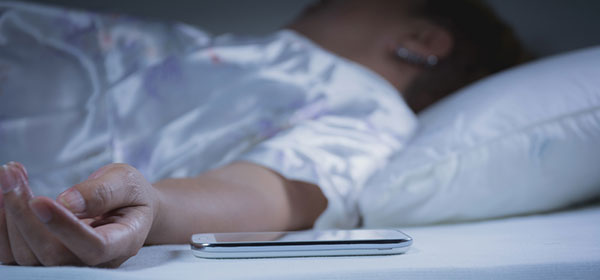A lot of people take their smartphone to bed with them, whether its to use as an alarm clock or to reply to messages around the clock, but does this cause you harm?
Cancer concerns
There is a widespread concern that smartphones can cause cancer, due to their use of radiation but as of yet, there has been no connection established, despite intensive tests and studies. The US National Cancer Institute states on its Cell Phones and Cancer Risk page that “there is currently no consistent evidence that non-ionizing radiation [the type used in smartphones] increases cancer risk.”
Sleep cycles
The human body has a complex sleeping rhythm that relies on many factors to function properly. One of the most vital of these factors is the presence of blue light. Before technology, we were only exposed to blue light during the day and we have evolved to secrete melatonin, a hormone that regulates sleeping, once the blue light disappears.
It makes sense in nature that once the sun is down it’s time to sleep, but our computers, smartphones, tablets and TVs all emit large amounts of blue light, which delays the secretion of melatonin. Going to sleep shortly after using blue light emitting technology will typically impact your ability to fall asleep, and cause you to feel much more tired in the morning. Long term effects of chronic melatonin suppression include increased risk of breast cancer, colorectal cancer and prostate cancer.
What can you do to stop it?
Well, the easiest solution is to not sleep with your smartphone, however if you still want to have your phone in bed with you (I find vibrations more pleasant to wake up to than loud beeping) you might want to install software that reduces the amount of blue light they emit.
Popular app Twilight is available on Android devices for free and will allow you to set your smartphone to dim its display and shift to redder colours (red light has a minimal impact on melatonin secretion) as it gets later in the evening.
f.lux functions such as Twilight above and is available for Windows and Mac. There is also an iPhone and iPad version, but unfortunately Apple hasn’t allowed it onto the App Store, so it is only available for jail broken devices. Click here for more information.
Read more at www.health.harvard.edu and www.brighamandwomens.org
Related articles:
Sleep – five tips to get enough
How to exercise without trying
How to live longer
Updated from original article titled ‘Should you sleep with your phone?’

